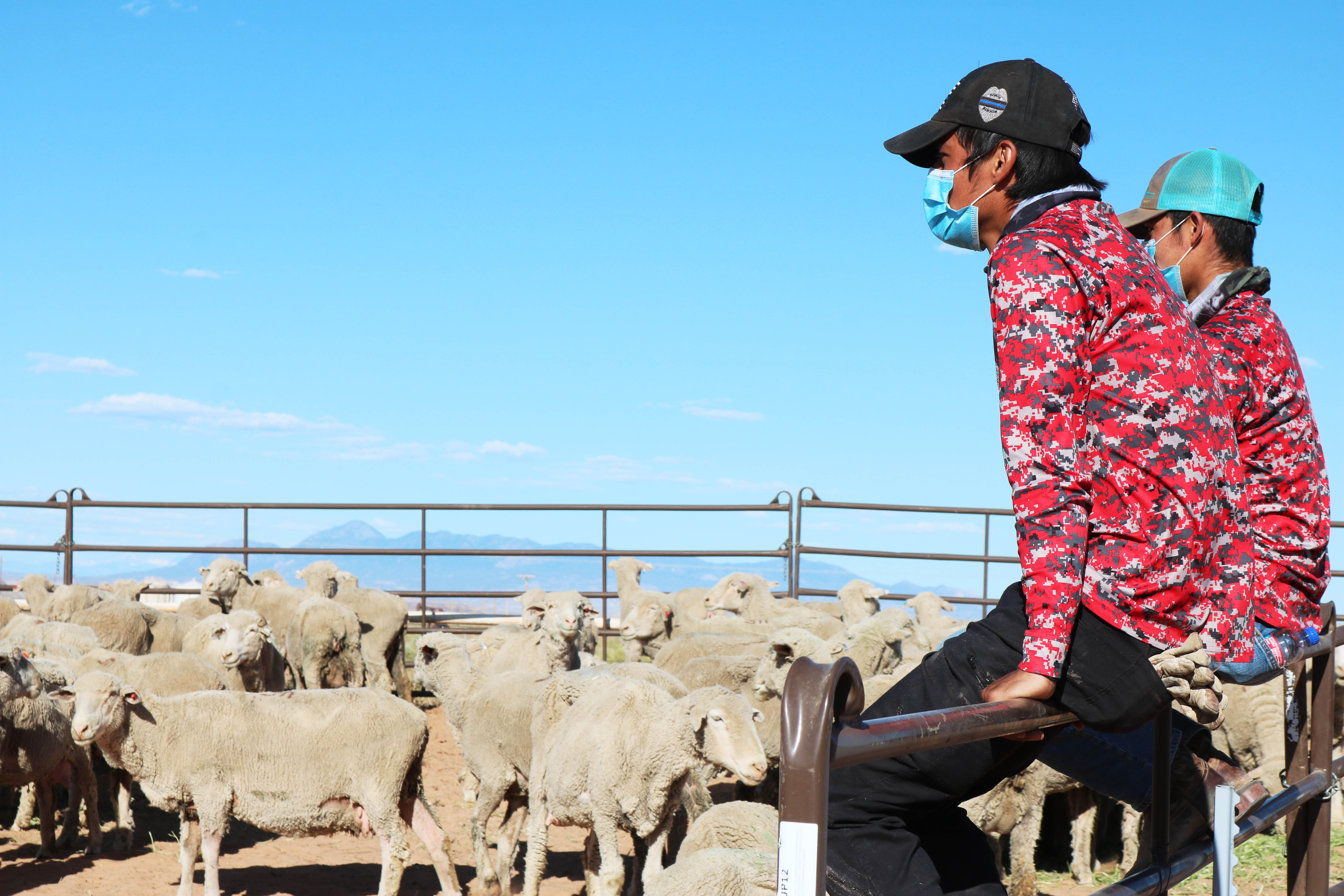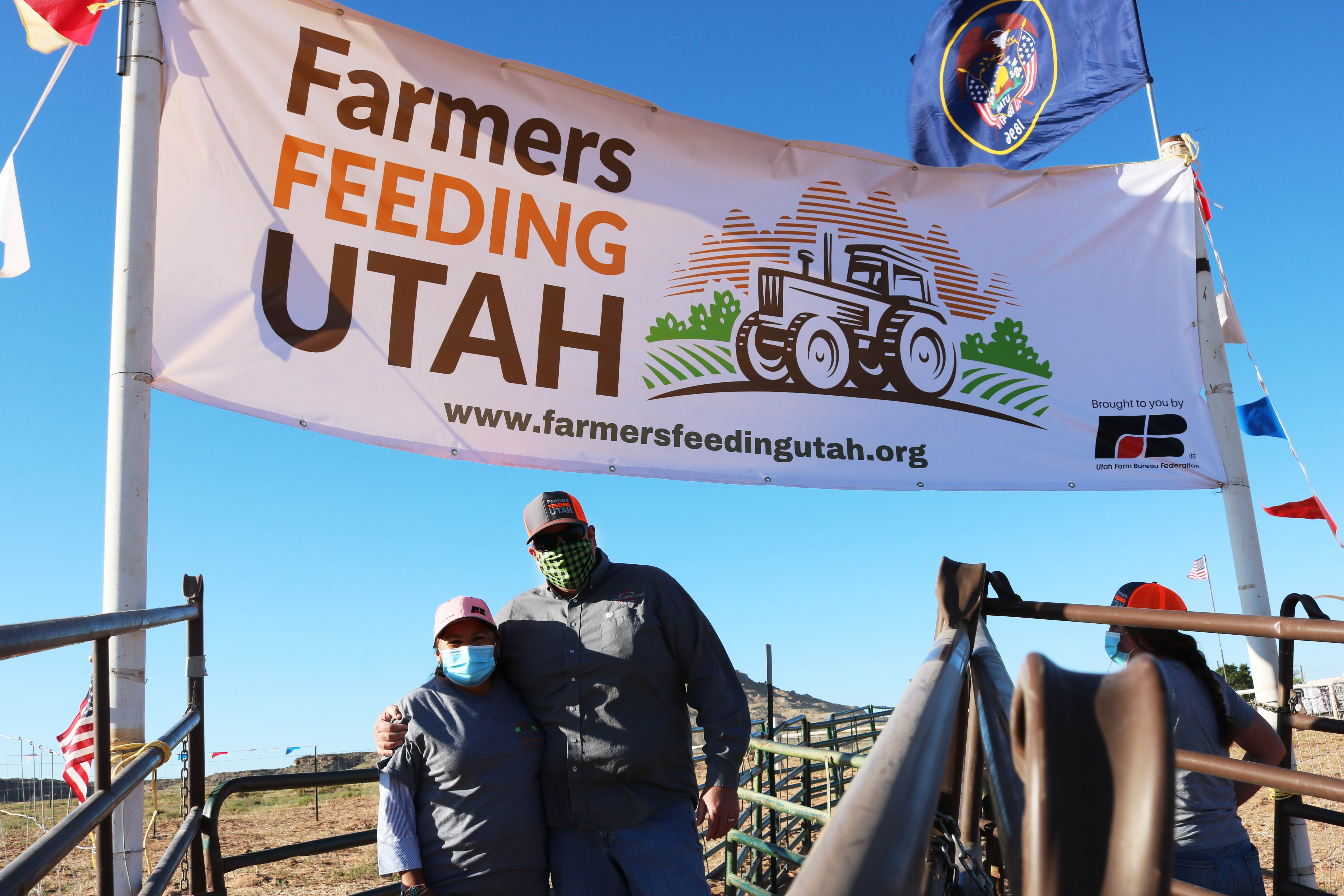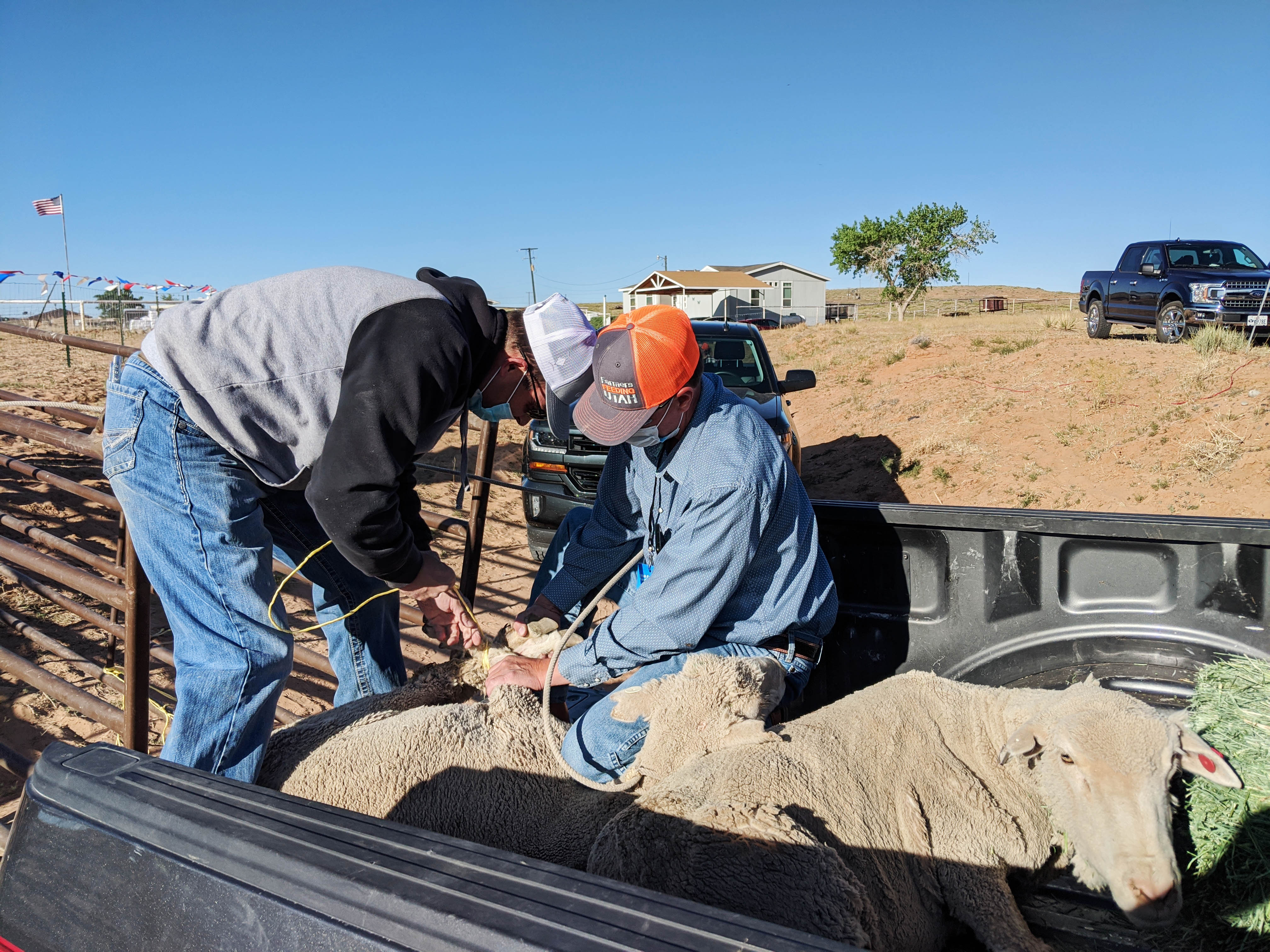Farmers Feeding Utah Helps Navjo Nation With First 'Miracle Project'
Published
6/8/2020
Launched by the Utah Farm Bureau in early May with the two-fold goal of helping sustain farmers and ranchers impacted by COVID-19 and providing food and donations to Utah families in need, Farmers Feeding Utah.
Farmers Feeding Utah was launched in partnership with Utah State University’s Hunger Solutions Institute, other hunger relief organizations and the Utah Department of Agriculture & Food.
The first miracle project involved the Utah chapters of the Navajo nation in Southeastern Utah – specifically, the Mexican Water, Aneth, Oljato, and Navajo Mountain chapters.
Over the past week, the Utah Farm Bureau delivered 600 live sheep, about 16,000 pounds of frozen lamb and 10,000 pounds of Utah flour.
The first delivery of frozen lamb, purchased from Sanpete County sheep rancher Drew Jorgensen, was delivered to the Blanding Food Pantry on May 22. On Monday, May 25th, partners with Farmers Feeding Utah gathered at the home of former San Juan County Commissioner Rebecca Benally in Montezuma Creek, and delivered more than 300 live sheep to needy families from Aneth, Red Mesa, and Tódahadekanii. Household eligibility was determined by Community Coordinators, with priority given to single parents, Tribal elders, members with disabilities, and members with military service.
The second delivery of 250 live sheep took place on June 1, and focused on residents in Halchita, Navajo Mountain, and Oljató/Mounument Valley. The live sheep were purchased at the Salina livestock auction from several area sheep ranchers.

“Through this first project, we’re able to help a very deserving group of people that have been hit hard by the COVID-19 pandemic and help some Utah sheep ranchers at the same time. These ranchers have had their market for lamb reduced significantly with restaurants operating at limited capacity,” said Ron Gibson, president of the Utah Farm Bureau Federation.
This project, the campaign also included logistical assistance from The Church of Jesus Christ of Latter-day Saints.
“This [sheep donation] will probably be the single most important thing that happens during this pandemic,” said Todd S. Larkin, an Area Authority for The Church of Jesus Christ of Latter-day Saints. Larkin has been coordinating the Church’s humanitarian efforts on the Navajo Reservation. “The [Navajo community members] will take these sheep, and it will provide food and nourishment to their families, probably until this is over. I sure hope it doesn’t last longer than that.”
The Navajo Nation, the largest Native American reservation in the country, has seen higher death rates from COVID-19 than most other states in the country. Many live in areas considered food deserts. For some communities, unemployment rates are 100% or close to it, as many depend on recreation to fuel economies.
Navajos believe in Dibé bei Iiná (loosely translated to mean “Sheep is Life”). They value the life of a sheep because of the food they provide, the products they provide for rug weaving and cultural ceremonies.
“Because of Covid-19, some people are on lockdown quarantine and they feel lonely and depressed. They feel that maybe no one is thinking about them,” said Rebecca Benally. Benally was an invaluable partner in coordinating the distribution of sheep and food to other community members. “With these sheep, people tell me it has given them hope and helps them know someone cares about them. Sheep are very symbolic of hope and prosperity. You will see people here very happy to get sheep, and they will utilize every bit of the sheep to give them hope.”

“As a state, we really need to step up to make sure our local food production stays intact. Once we lose a farm, it’s gone forever. The time is now to step up and keep farmers and ranchers producing local food,” Gibson said. “It has been an amazing experience to participate in this first project. The expressions of gratitude and thanksgiving from the Navajo members of our state has been unbelievable. At the same time, many of our sheep ranchers have benefited and this has helped to give them a hand-up at a time of need.”
The campaign includes a crowdfunding component through which individuals, organizations and private companies can donate funds via FarmersFeedingUtah.org. Every penny of the donations will go to purchasing, processing and distributing locally sourced food from Utah’s farmers and ranchers to families in need. So far, people have donated approximately $200,000.

The Utah Farm Bureau envisions the campaign continuing on for the long-term, and perhaps indefinitely, as a way to serve those in need in their community. The has identified several projects that it plans to help out with over the coming months. It most recently identified food pantries in several northern Utah communities as needing help and announced a new campaign goal of $150,000 to help.
“We’re encouraging all Utahans to help grow a miracle by donating to the Farmers Feeding Utah campaign, so we can keep our state’s farm and ranch families producing the local food we all need, and also feed the growing number of families in need,” Gibson said.
Those interested in contributing can do so by visiting FarmersFeedingUtah.org.
Want more news on this topic? Farm Bureau members may subscribe for a free email news service, featuring the farm and rural topics that interest them most!
